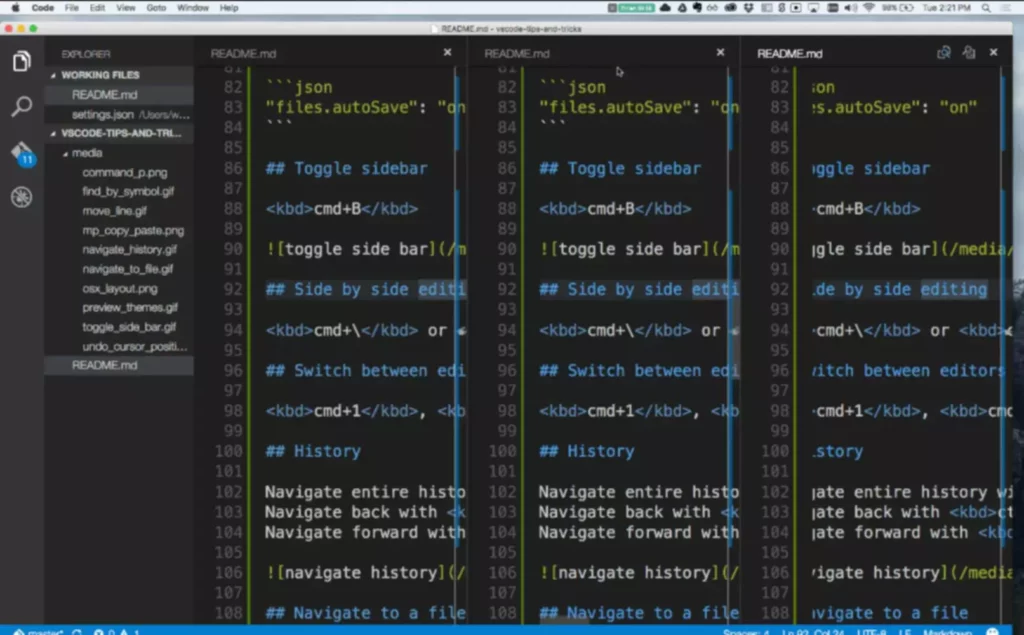However, Kubernetes provides a extra advanced networking mannequin, offering service discovery, load balancing, and network policies out of the field. Kubernetes introduces the idea of Services, which act as secure network endpoints for accessing functions running within containers. Nonetheless, Docker by itself doesn’t handle a quantity of containers or coordinate deployment throughout a cluster of machines. Kubernetes’ extensible architecture permits integration with several third-party tools, cloud providers and services. For instance, OpenShift is a Kubernetes service run by RedHat that manages Kubernetes clusters. This extensibility lets organizations customize and improve their Kubernetes deployments to meet particular wants while incorporating a broad set of technologies and greatest practices.

Docker is a containerisation platform that permits builders to package purposes and their dependencies into portable containers. In practice, Docker ensures portability, whereas Kubernetes automates complex duties like scaling, load balancing, and self-healing. Collectively, they allow groups to maneuver from managing particular person containers to orchestrating entire distributed methods. This synergy explains why so many organizations choose Docker for container creation and Kubernetes for orchestration in their cloud-native workflows. Kubernetes is very efficient in microservices architectures, the place purposes are broken into smaller, impartial providers. It simplifies inter-service communication, scales individual elements as needed, and ensures system well being.
Kubernetes Vs Docker: Key Distinctions
- Kubernetes excels by automating and orchestrating deployments, making it perfect for multi-host, cloud, or hybrid environments.
- Learn more about Kubernetes from Civo Academy and get to know more about Civo Kubernetes.
- When you execute Docker commands, the Docker consumer communicates with the Docker daemon.
- Kubernetes abstracts away the underlying infrastructure, permitting developers to concentrate on application logic rather than the complexities of deployment and scaling.
- Kevin Kiruri is an skilled AWS Cloud Options Architect and writer specializing in cloud computing.
This ensures that containers are efficient, safe, and capable of why docker is used sharing the same host working system without interference. By understanding how Docker functions independently, you’ll be better prepared to explore its integration with instruments like Kubernetes. Docker packages functions and their dependencies into transportable containers that run reliably throughout different environments. Docker is well-suited for straightforward containerization needs and lighter workloads, while Kubernetes shines in managing advanced applications, providing advanced networking, and scaling capabilities. Assessing your particular project requirements and desired functionalities will assist determine whether Docker vs Kubernetes is one of the best match in your use case. You can use them to construct container pictures, deploy them, and manage all their dependencies across any setting.
Much of the confusion around Kubernetes vs Docker stems from modifications in the container runtime ecosystem. For years, Kubernetes used Docker as its default runtime, however latest variations have transitioned to alternate options like containerd (which Docker additionally makes use of under the hood). In short, Docker is a platform to run immutable containers encapsulated with near native efficiency on a desired machine. According to a newsgroup submit by Torvalds,15 the word “Linux” should be pronounced (/ˈlɪnʊks/ ⓘ LIN-uuks) with a short ‘i’ as in ‘print’ and ‘u’ as in ‘put’.
Key Features
Whether Or Not it’s CPU utilization, memory needs, or customized metrics, Kubernetes ensures environment friendly resource allocation whereas maintaining efficiency. Kubernetes can automatically join applications to storage methods – whether or not it’s native storage, cloud-based choices, or network storage – with out requiring builders to understand the infrastructure intimately. Docker additionally takes advantage of Linux kernel options like namespaces and cgroups to isolate containers.

Consistent And Isolated Setting:

For simple containerization tasks or local improvement, Docker offers simplicity and pace. However, for functions requiring automated scaling, excessive availability, advanced deployment strategies, and strong management throughout a distributed infrastructure, Kubernetes becomes the indispensable orchestrator. Crucially, this discourse has underscored how nicely each Kubernetes and Docker work together.
Docker, as an easier platform, is simpler to be taught and use, that means that much less tech-savvy employees can use it. Kubernetes has a more sturdy safety mannequin, with features like Role-Based Entry Management (RBAC) and Safety Contexts. Its complexity can also lead to security misconfigurations if not properly managed. If you are interested in utilizing extra Kubernetes vs Docker features, strive SentinelOne. Our world-class AI-powered cloud-native platform will provide you with https://deveducation.com/ one of the best of both worlds concerning Kubernetes and Docker security. So while Kubernetes not relies on the full Docker Engine to run containers, teams nonetheless construct and push Docker photographs as a part of their DevOps workflow.
Docker Vs Kubernetes: Orchestration And Scalability
Docker makes a speciality of constructing and packaging functions into light-weight, portable containers, simplifying the development and sharing of software program. On the other hand, Kubernetes acts as the orchestrator, handling the heavy lifting of managing these containers at scale. It takes care of duties like deployment, scaling, load balancing, and monitoring, making certain every thing runs smoothly. Kubernetes, commonly often recognized as K8s, is a robust and open-source container orchestration system developed by Google utilizing the Go programming language. The open-source container orchestration know-how often recognized as Kubernetes, typically referred to as “K8s”, allows the automated deployment, scaling, and administration of containerized functions.
If your project depends on a microservices architecture, demands excessive availability, or requires scalability, Kubernetes offers advanced tools like automated deployments, scaling, and cargo balancing. Whether Or Not you need Docker or Kubernetes will depend on should you require cloud-native features. You additionally want to think about the complexity of your software and the variety of workloads you intend to run on it. Kubernetes is a superb choice for heavy manufacturing environments and might handle a quantity of containers across a quantity of machines. If you’ll find a way to handle your infrastructure and don’t want any Kubernetes-specific features, you ought to use Docker Swarm. The choice between Kubernetes and Docker is not an «either/or» dilemma, but somewhat a strategic selection about the right device for the right job, usually resulting in a powerful synergy.
You can nonetheless entry the catalog via Docker Hub or immediately from the MCP Toolkit in Docker Desktop, and now, it’s additionally obtainable through a devoted internet hyperlink for even sooner access. Together, these updates streamline the method of constructing agentic AI apps and supply a preview of Docker’s ongoing efforts to make it easier to maneuver from native development to production. These were like full computers inside a pc, each running its working system.
One of its standout features is its capacity to scale with out requiring a larger operations staff. As your application grows from a handful of containers to hundreds, Kubernetes handles the rising complexity, taking good care of operational duties mechanically. One of Docker’s standout advantages is its capacity to create constant growth environments. It eliminates the notorious “it works on my machine” problem by making certain that each stage – development, testing, and manufacturing – operates in an identical setup. Docker pictures act as read-only templates containing every thing necessary to run an application. Dockerfiles, on the other hand, perform like a set of instructions, detailing tips on how to construct these pictures.
